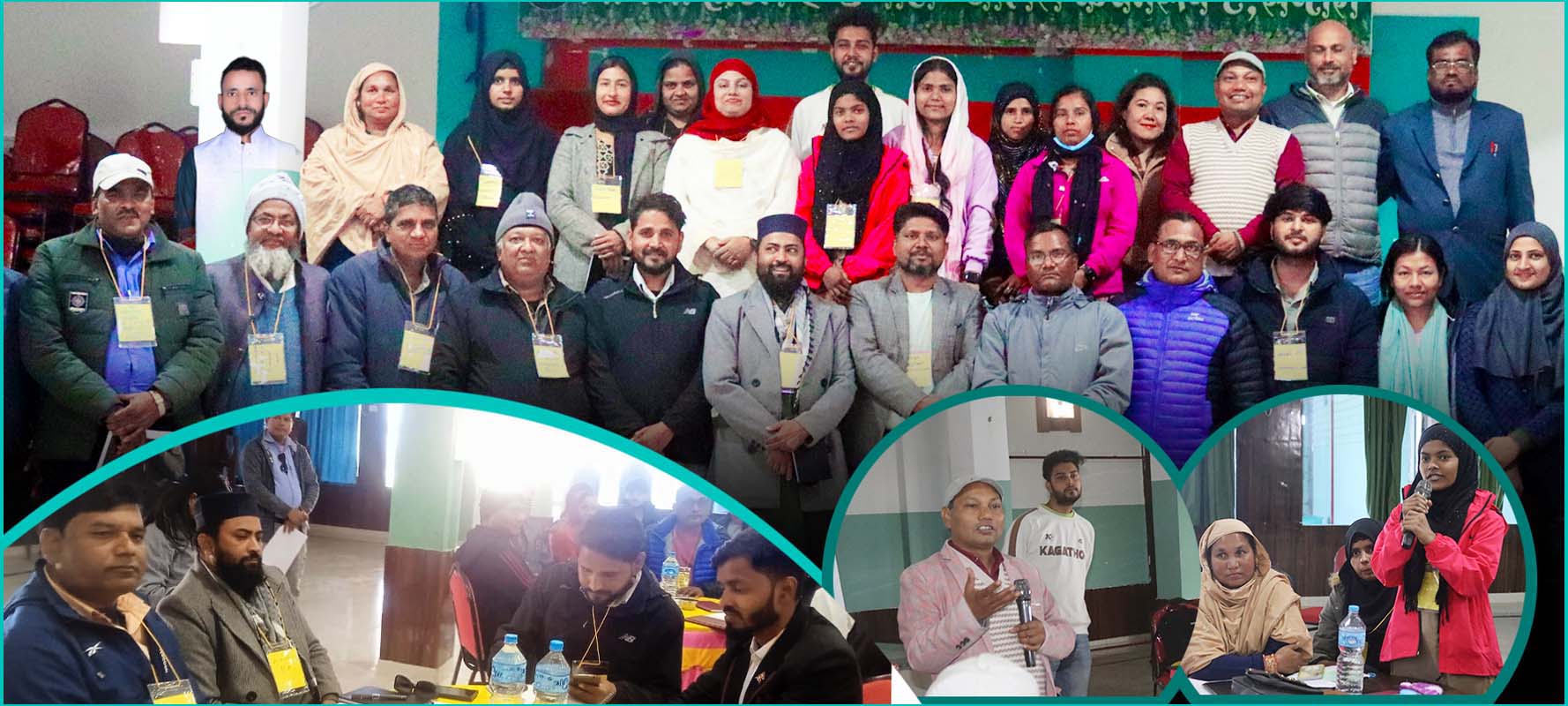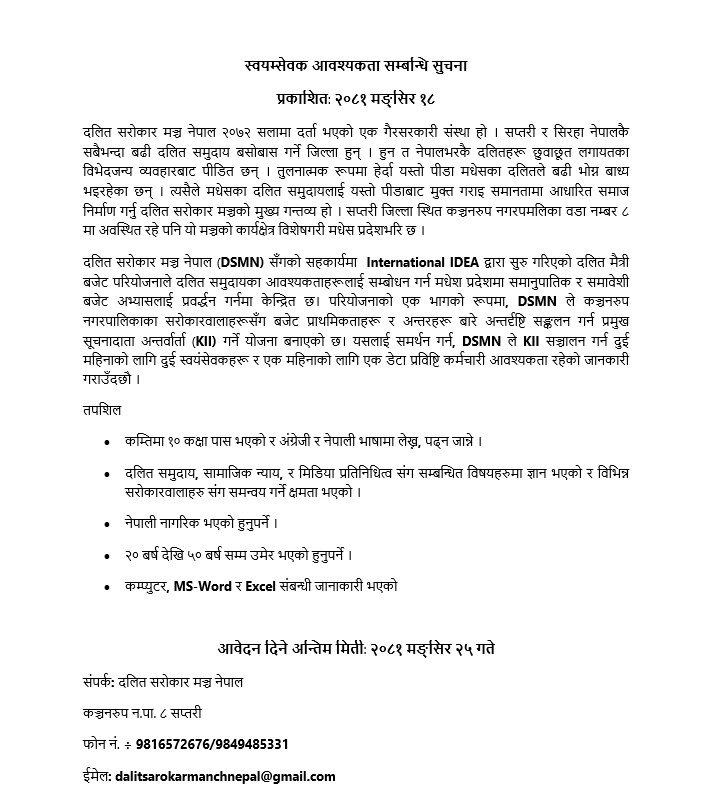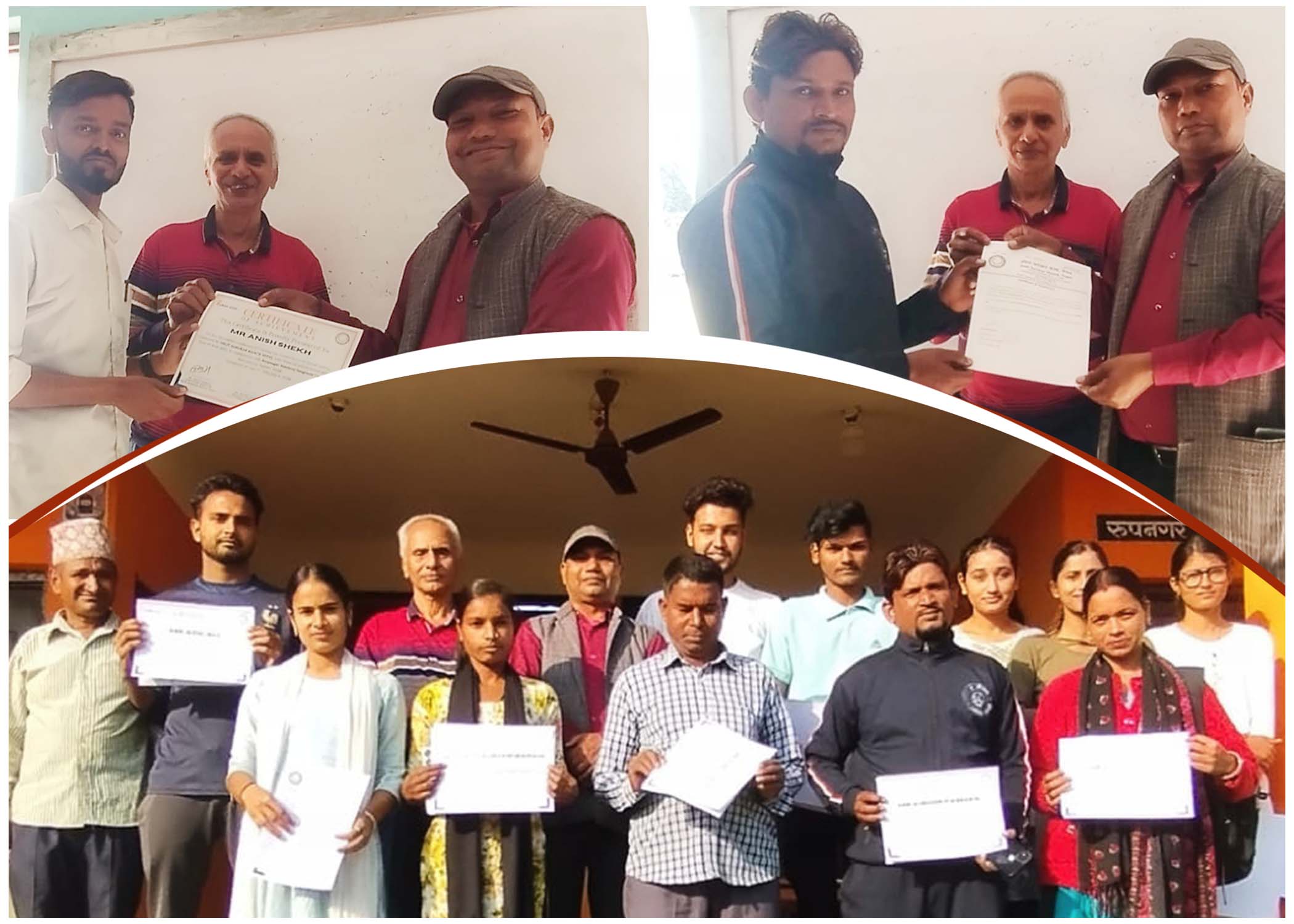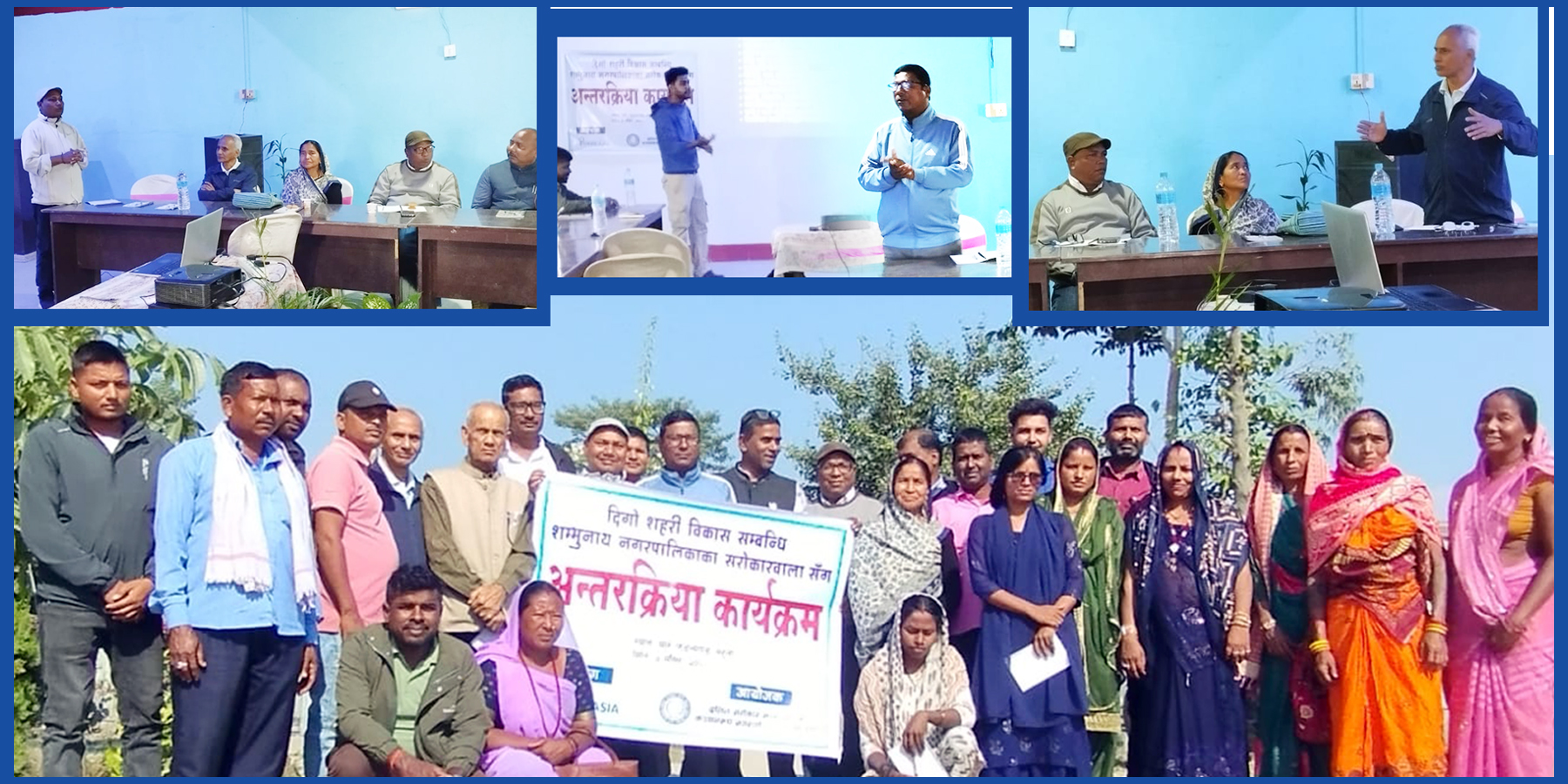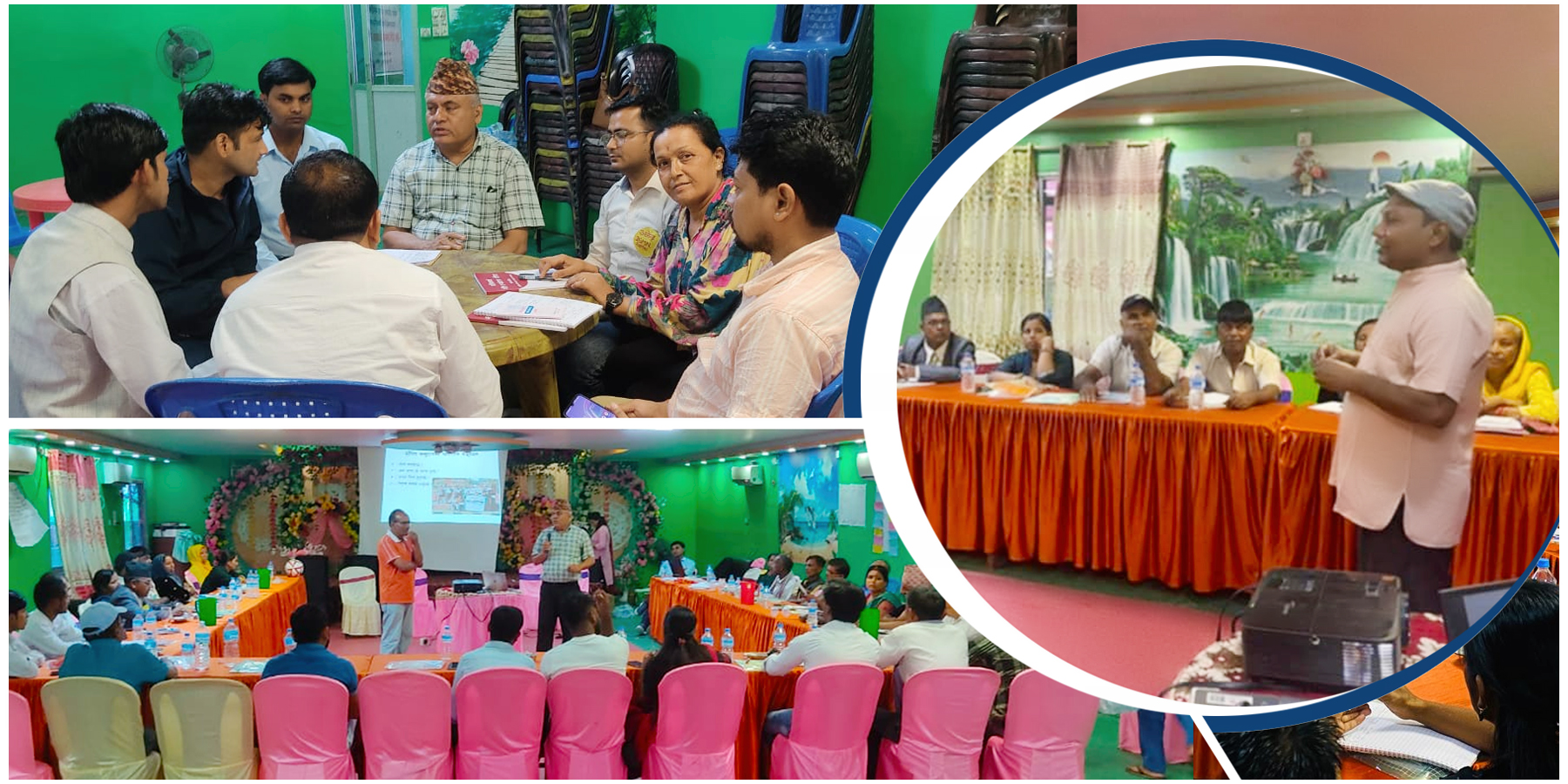
A commitment to form a caste untouchability monitoring committee by Dalit civil society officials
- 2024/07/18
Mirchaiya (Siraha), 16th of July. Dalit civil society officials have expressed their commitment to pressure the formation of local caste discrimination and untouchability monitoring committees in all 136 municipalities of Madhes province. In the Act 2076 issued by the Madhes state government to make arrangements for the empowerment of Dalits, there is a provision that such a committee should be formed in every municipality, so far only 35 municipalities have formed such a committee.
Although this Act stipulates that there will be such a committee in each rural municipality and municipality to control and monitor incidents of caste discrimination and untouchability at the local level, they also expressed anger that the municipalities have not paid attention to this until now. According to them, there is a provision that such a committee, whose coordinator is a person selected from among the Dalit members appointed by the chairman of the rural municipality or the head of the municipality, can do a lot of work, but since the committee itself has not been formed, they accused the municipalities of disregarding the law issued by the provincial government. In a 3-day capacity development training organized for officials of the Dalit civil society network under the USAID Civic Society and Media Activity in Madhes Province with the implementation of The Asia Foundation, The Asia Foundation, and the implementation of the Dalit Concerns Forum Nepal's technical support. The participants expressed such a commitment.
Such a committee should promote and advocate at the local level for the protection of the rights and interests of Dalits, for this purpose, resolve the obstacles and problems that have arisen at the local level, report and support the provincial monitoring committee for the work to be done at the local level, assist in the implementation of the law against discrimination against Dalits. , carrying out all activities related to arranging free and compulsory education for Dalit students, appropriating and passing the budget from the local government for Dalit development and upliftment, and assisting in the implementation of the said program under the leadership of Dalits, and awareness programs at city and village levels to prevent incidents of caste untouchability. Has the right to operate. But they complained that they could not exercise such rights because the committee was not formed.
During the training, the trainer Dr. Vijay Mishra facilitated about the organization's strengths, weaknesses, opportunities and challenges, leadership and the qualities a leader should have. He suggested that in order for any organization to be alive, its leadership should be strong and think seriously about it. Another trainer, journalist Raghunath Lamichhane, gave detailed information about the rationale, importance and effectiveness of the local caste discrimination and untouchability monitoring committee. He informed the participants about the formation of such a committee in Madhes province, the effectiveness of the formed committee and the role that Dalit civil society officials should play to make such committees effective.
Bhola Paswan, executive director of Dalit Sarokar Manch Nepal, informed that the training, which is being conducted at Mirchaiya Hotel Holiday in Siraha, will be conducted till July 3. According to him, such a program was organized with the aim of activating Dalit civil society officials, leading journalists of Dalit community and officials of Dalit brotherly organizations of political parties for the implementation of the Dalit Empowerment Act.

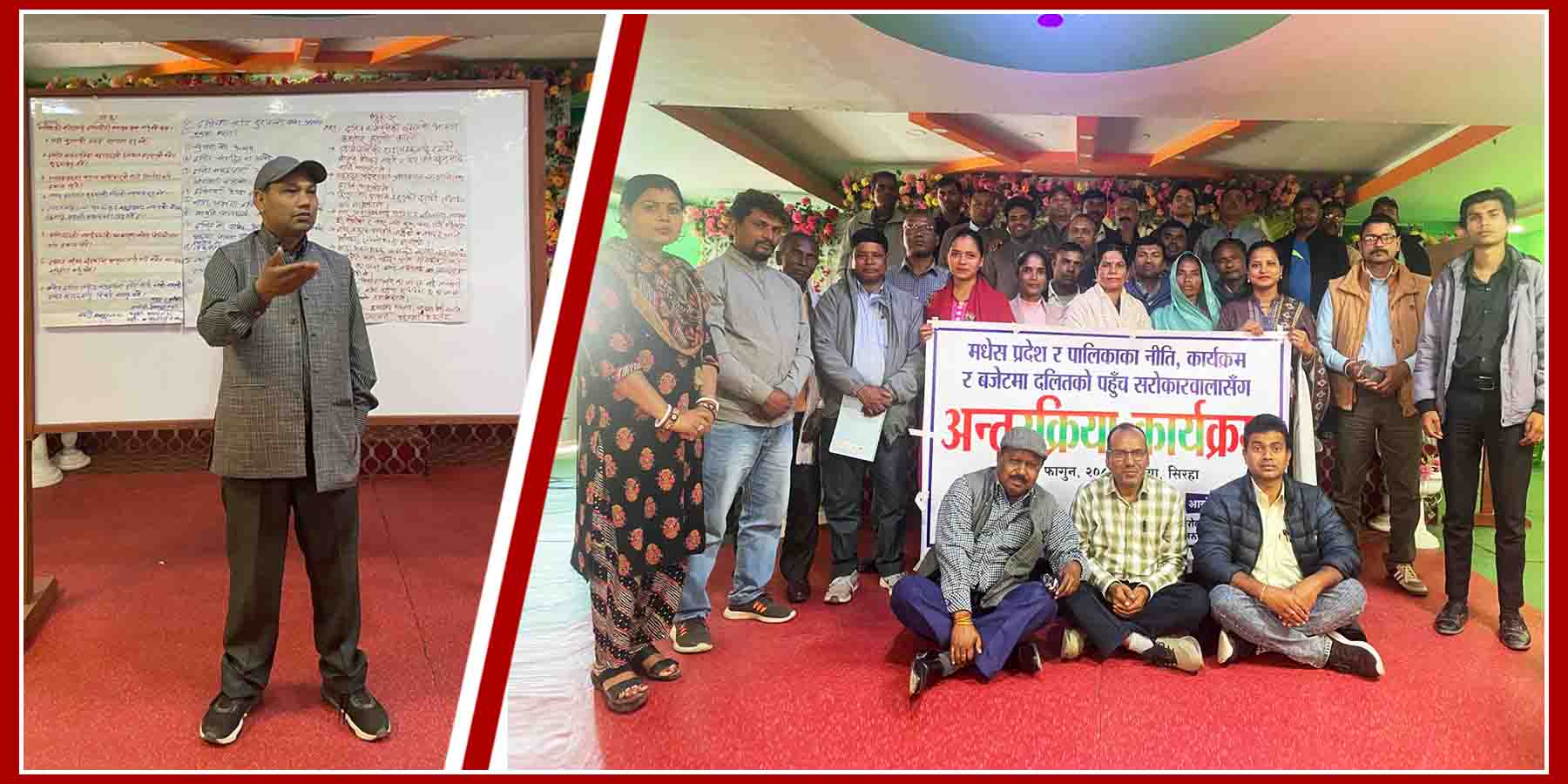
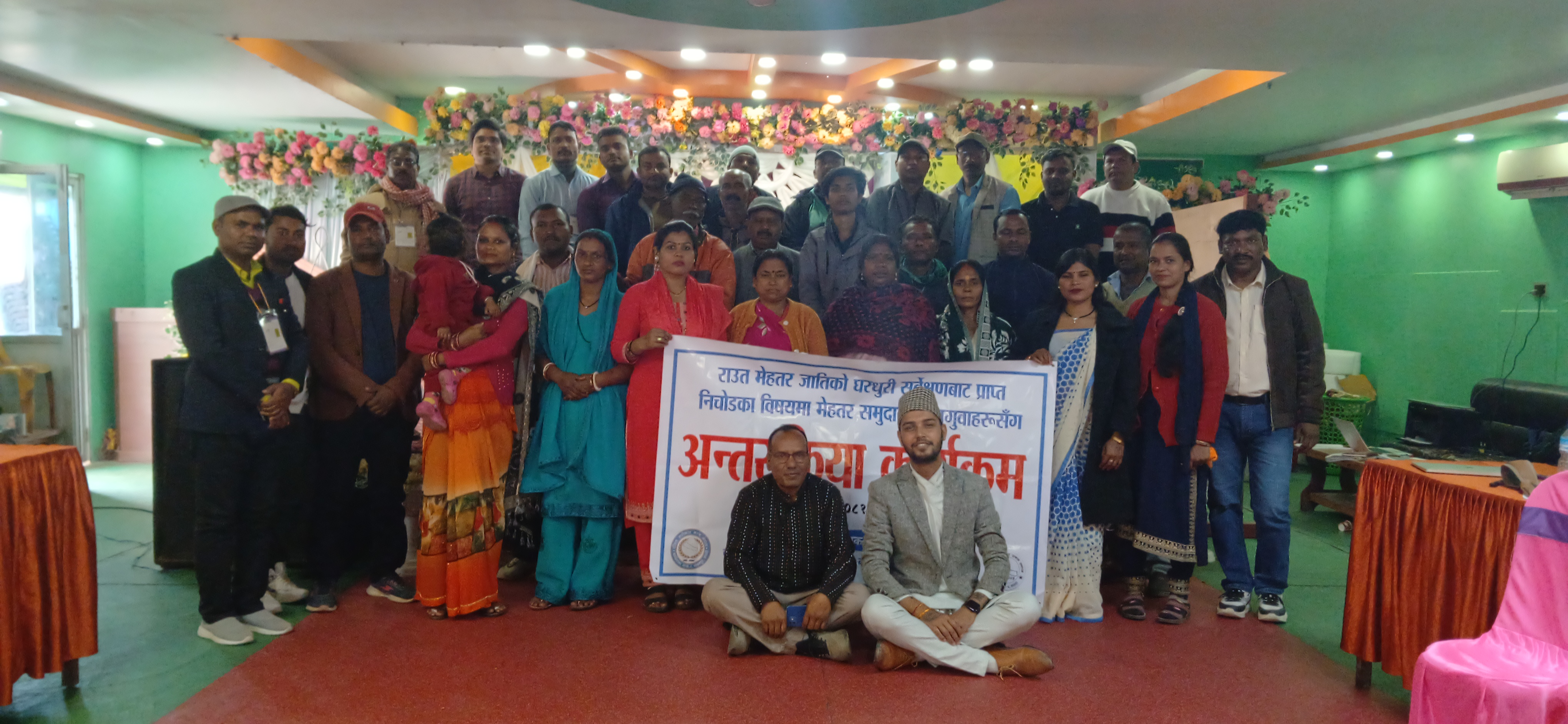

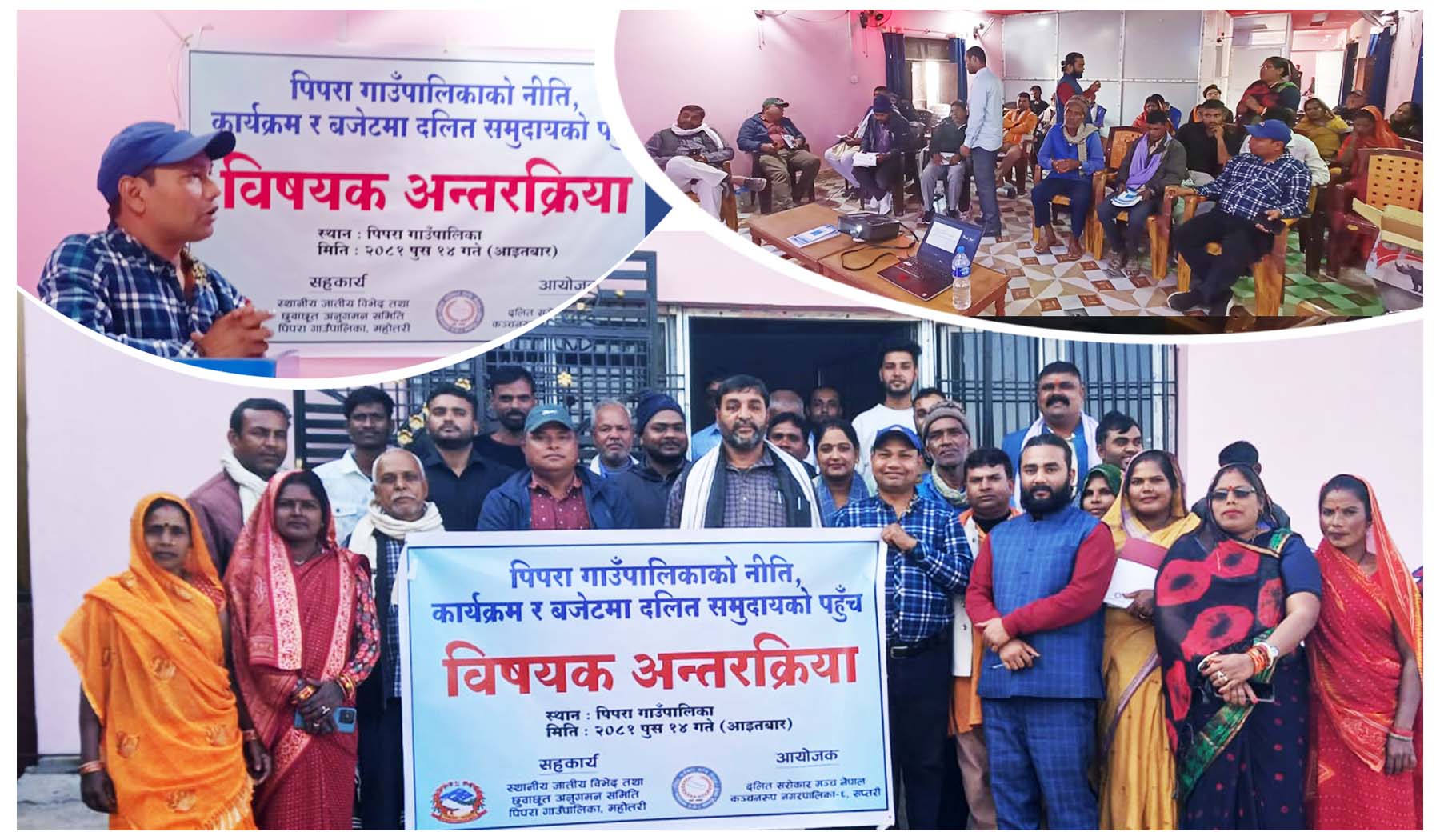
.jpeg)
